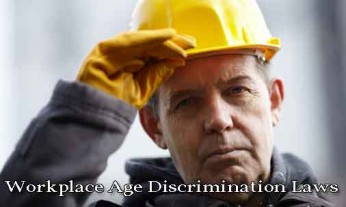 Understanding workplace age discrimination laws. Age discrimination occurs when a person is treated differently, or denied a benefit, right or service because of their actual or perceived age. Age discrimination is more subtle than other forms of discrimination, but can be just as pervasive in a workplace.
Understanding workplace age discrimination laws. Age discrimination occurs when a person is treated differently, or denied a benefit, right or service because of their actual or perceived age. Age discrimination is more subtle than other forms of discrimination, but can be just as pervasive in a workplace.
Workplace Age Discrimination Laws
Both federal and California state laws provide specific prohibitions against age discrimination in the workplace. The Age Discrimination in Employment Act of 1967 (ADEA) prohibits age discrimination against all persons 40 years or older. The ADEA is applicable to employers with 20 or more employees, and this includes labor organizations, employment agencies and also state and local governments. This law prohibits unfavorable treatment against those who are 40 years or older, though it is not illegal for employers to favor an older employee over a younger employer, even when both workers are over the age of 40. Furthermore, age discrimination can be conducted by a person who is also over the age of 40.
The ADEA prohibits age discrimination from occurring during any part of the employment process, which includes firing, hiring, job assignments, training, promotions, layoffs, benefit payouts, and for any other condition or term of employment. Harassment is also prohibited by the ADEA. Harassment can take an assortment of forms and can include offensive remarks about an employee’s age and ability to perform job functions as the result of their age. Furthermore, an employment practice/policy that has general applicability to all employees, regardless of their age, can still be found illegal under the ADEA if that practice/policy is not based on a reasonable factor other than age, and has a negative impact on employees 40 years of age or older.
California’s Fair Employment and Housing Act
California’s Fair Employment and Housing Act (FEHA) provides specific prohibitions against discrimination in California workplaces. The FEHA applies to all employers with five or more employees, and this includes government bodies, labor organizations, apprenticeship programs, employment agencies and private employers. Under the FEHA, there is an exception to the five-employee minimum when harassment has occurred in the workplace. Under this exception, all employers with one or more persons, or those receiving the services of at least one independent contractor, are subject to the FEHA’s prohibition against workplace harassment. This exception also allows individual co-workers who are harassing other employees to be held strictly liable for their actions.
Both the ADEA and the FEHA provide employees with a cause of action to file suit against their employers because of workplace age discrimination laws. However, state administrative remedies provided under the FEHA must first be exhausted before a civil action is pursued under the ADEA. In order to pursue age discrimination suit under federal law, the age discrimination suit must be filed with the Equal Employment Opportunity Commission (EEOC) within 300 days of the alleged discrimination, or within 30 days after the EEOC receives notice from the California’s Department of Employment & Housing (DFEH) that they will not pursuing the age discrimination claim.
Age discrimination in the workplace is a very important issue that is prohibited by both state and federal laws. If you work in Sonoma County, Mendocino County, or Lake County California and feel that your employer is in violation of workplace age discrimination laws, contact the employment law attorneys at Beck Law P.C. in California today.
